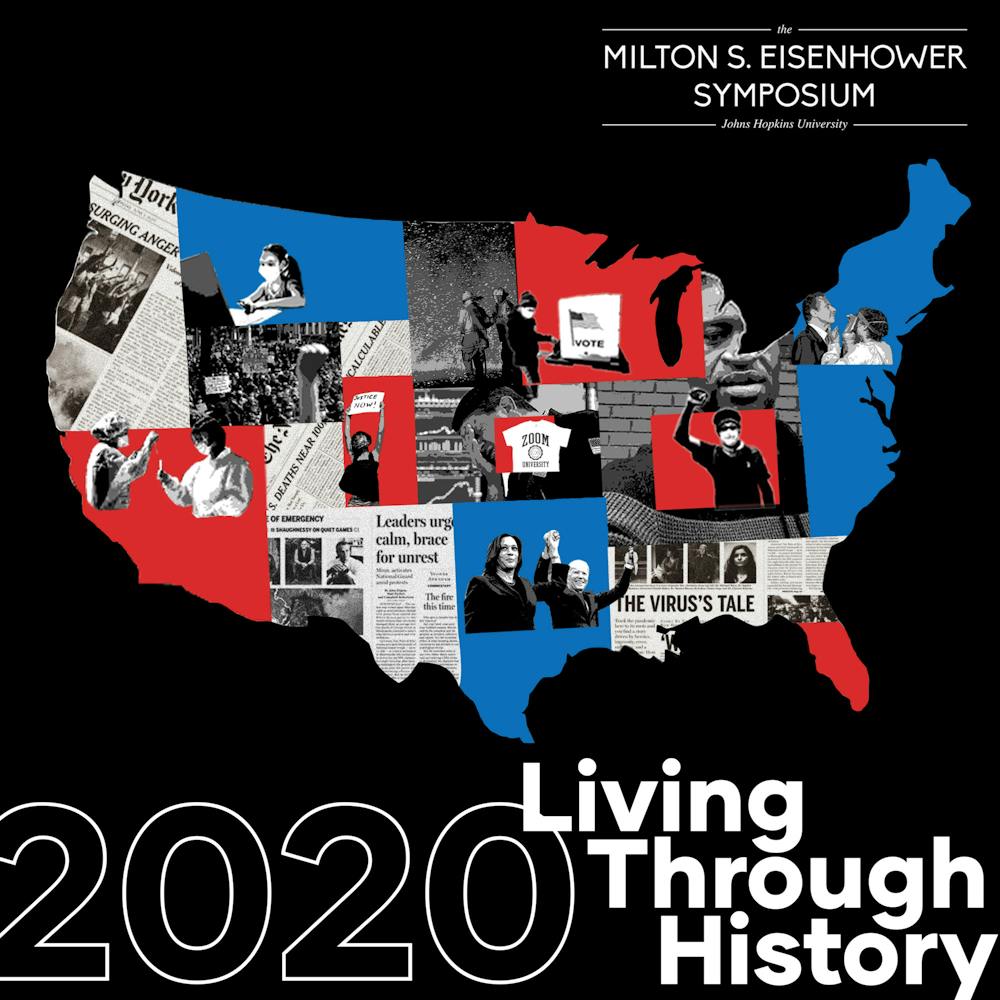Michael Barbaro, host of the New York Times podcast The Daily, spoke at the first event of the Milton S. Eisenhower (MSE) Symposium series “2020: Living Through History” on Sept. 15 via Zoom.
Barbaro’s talk revolved around the intersectionality between the public, new media, politics and distrust in this era of uncertainty. He acknowledged the multitude of crises we are currently facing but focused his discussion on the issue of trust between the public and the media.
The New York Times journalist credited U.S. President Donald J. Trump’s attack on journalistic integrity through his coinage of the term “fake news” as a driving force of the distrust between journalists and the public. Barbaro emphasized the repercussions of these “tweet for news” sites, calling it an action that both discredited and dehumanized journalists.
Barbaro created The Daily in an effort to counter Trump’s agenda of invalidating the media.
“We wanted it to be a short 20-minute show that can fit into people’s lives. We can take the rich tradition of narrative audio, story-telling to think about this American life and marry it with the traditions of a typical newscast. We’re going to find an interesting way to tell the story of this highly disruptive moment and this new presidency,“ Barbaro said.
He underscored the importance for news sites to repair their relationship with the public and heal the damage from Trump’s presidency. He even noted that after The Daily’s first episode aired, Trump called The New York Times the enemy of the people on Twitter.
“It seems we have a lot of work to do. Yet when it comes to this, I know that the work we're doing on the show and from this growing audience, we are making progress. The problem is real and it's dangerous, but we believe that we are starting to see a path forward,“ he said.
Barbaro explained that after following and covering Trump’s entire presidential campaign, even he did not anticipate his victory in the 2016 election. He described the night in the New York Times newsroom, where he and his colleagues were instructed not to do anything because they already had a story announcing Trump’s defeat prepared.
He discussed his own credibility in reflecting on that night in 2016, noting that he was a well-informed, national journalist, not a random person on the street, and had still misread the election. Barbaro acknowledged that false predictions about the 2016 election could be impacting people’s trust in the media heading toward the 2020 election.
In an email to The News-Letter, senior Anna Sargeantson, programming co-chair of the MSE Symposium, shared that the organization chose its speaker lineup this year to address these issues Barbaro discussed.
“We chose speakers this year who could talk about important issues relating to the major events of 2020, such as the election, coronavirus and racism in the United States. Michael Barbaro was the perfect person to talk about the relationship between media and politics in this era of uncertainty,“ she wrote.
Junior Allie Pearson, a regular listener of The Daily herself, enjoyed Barbaro’s discussion on bipartisan discussion in a divided country.
“Mr. Barbaro explained how when he interviews someone for The Daily, he makes sure that the person being interviewed tells their story how they want. This is something I want to be more aware of when I consume media. While all media has biases, the truest form of news comes when the journalists are open-minded and let the stories speak for themselves,“ she said.
Junior Sylvana Schaffer noted that attending the event through Zoom successfully simulated an in-person event, but with a unique, personalized twist.
“The webinar format and order of the event — beginning with MSE members all dressed up giving introductions and ending with the Q&A — made it feel more real despite it having to be virtual. I kept trying to imagine the event taking place in person and found it was not that hard to do,“ Schaffer said.
The MSE Symposium will be hosting former U.S. ambassador to the United Nations and former national security advisor Susan Rice as its second speaker of this year’s series on Sept. 29.





